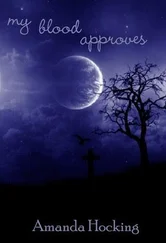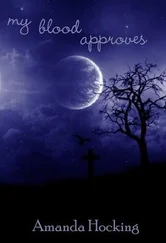The words blazed white on the grey surface. She lowered her glasses and looked sternly at the wall. Nothing. She raised the glasses. The graffiti re-appeared. She swallowed. The writer had used a paint that was reflective in the infra-red portion of the spectrum.
The message read:
Das Kribbeln in meinen Fingerspitzen lässt mich ahnen, es scheint ein Unglück sich anzubahnen.
The glasses were produced in America and their default language was English. Uncommanded, a subtitle ran across the base of her vision.
‘The pricking in my fingertips lets me say that bad luck is on the way,’ it read.
Her heart tapped at her ribs. The glasses skipped through a Euclidean deep-structure analysis of the sentence and returned a quote that was its nearest neighbour in a multi-dimensional semantic space:
By the pricking of my thumbs, something wicked this way comes.
Shakespeare , thought Saskia. Macbeth . The play began with three witches, each an analogue of a Fate: Clotho, she spins the thread of life. Lachesis, she measures a length. Atropos, she cuts it.
Spin, measure, snip. Her dream.
Surely the message had been written by Proctor. It was meant for her. He must have known, somehow, that she was tracking him and had, somehow again, happened upon a fragment of her past life—a memory that she could not yet fully recall. Plus, he knew she was German.
There was one last element to the graffiti: an arrow that pointed to a slab of masonry. Behind it, she discovered a fist-sized rock and, beneath that, a sealed plastic folder. Inside was a white envelope. It was impossible to tell how long the folder had lain there, waiting.
‘Are you alright, hen?’ called Jago from above. ‘Sit tight. I’m coming down.’
‘Don’t worry, Scotty. I’m on my way.’
She tucked the folder into her waistband, reattached her decelerator, and spun upwards.
David pulled into a narrow alleyway. He dug for the kickstand and eased his bike to a stable tilt. The glow of the display faded and the engine faltered and stopped. The suspension sighed.
It was nearly 6:00 p.m. That day, he had watched the sun climb. He had ridden through rain, seen a double rainbow, and swerved around road-kill. His shoulders and neck ached from the constant hunch. His kidneys, meanwhile, had been bruised by the vibration. Same story with his wrists.
‘Oi, gormless.’
David looked up. A middle-aged woman was leaning into the alley from her window. Her bosom rested on her white, folded forearms.
‘Aye, you. You can’t park that here.’
He opened his visor. ‘Firstly, I am not in any way gormless. Secondly, this bike will stay here, undisturbed by you, for the entire night. And if I find so much as a scratch in the morning, we can talk about it down the station.’
The woman moved back into silhouette. ‘Wor Barry would-’
David gave her a tired, tired look.
The single-glazed window slammed down. David sagged against the wall and tried to tune out the drumming in his ears. He slid his helmet upwards and ruffled his thinning hair. His neck had lost some movement but he resisted the urge to free the cartilage with a twist.
He emerged from the alley into a dusky street. Across the road was a pub called The Poor Players . Coloured lights pulsed in the windows. The music was a constant thump. Because it was an unlikely destination for a traveller as weary as him, he crossed the road. He reached to push the door when a voice said, ‘Yen’t a coppeh.’
A boy stood in the shadows. He wore a woollen cap, an Eskimo-style jacket with the hood down, jeans, and bright white trainers. He was bird-like in his movements. His eyes, when they caught the light, were red-ringed.
‘Sorry?’
David had no grip on the Northallerton accent. It sounded Geordie, but no doubt the boy would be offended by the comparison.
‘I heard what you said to old Taome. You aren’t a copper. On holiday, then?’
David shrugged as the words came into focus. His hand still hovered at the door. ‘Passing through. Yourself?’
‘Touting for business.’
Something in his voice spoke directly to David’s stomach. He felt nauseous. ‘Sorry, what?’
‘Wannafuckman?’ asked the boy. He was relaxed but poised to run. David knew he had asked that question a thousand times and, with repetition, the meaning had worn out.
David’s hand dropped from the door. He reached for the boy and, with a gloved finger, turned his face. ‘You’re not a boy at all. You’re just a little girl.’
Suddenly he thought of Jennifer.
‘All right, you’ve touched the merchandise. Cash or plastic?’
~
They ate in McCabe’s Fish Palace. David let the girl sit facing the window. The palace was empty but for them and McCabe, a Turkish man who whistled over his glass battlement. The air was heavy with grease, the floor slippery with it. In silence, they unfurled their fish and chips.
‘Eat it before it gets cold,’ David said.
‘I’ll eat it when I fucking want.’
‘Who are you?’
‘What?’
‘Your name.’
‘Janine, like the singer.’ She took a chip. ‘What’s yours?’
‘David, like the king.’
‘Jew, are we?’
‘Yep.’
‘Hmm.’ She ate some more chips, then lifted the fish with two hands and tore a mouthful from the middle. David watched her. She chewed once, twice and swallowed. ‘You have a daughter, don’t you?’
‘Sort of. I sent her away.’
She took another bite. With her mouth full, she waved him on. ‘Out with it, then. You’re paying me to listen—and paying well—so get your money’s worth.’
‘My daughter is called Jennifer.’
‘Me and her would get on like a house on fire, right?’
‘Actually, I’m not sure if she’s your type.’
‘Why did you send her away?’
‘I could give you facts. She was a real genius. The schools in this country couldn’t do anything for her. I decided to send her to a school in New York for gifted children. Jennifer was twelve. That was eight years ago. I think she works for the American government now.’
‘New York. Fuck, you have money.’
He shrugged and watched, his mind idling, as a customer walked in and asked for battered cod. An old man in faded jeans. ‘Yes, you’re right. I have money.’
‘So what else could you give me?’
‘What?’
‘You said you could give me the facts. But that’s not the whole story. Am I right?’
David ripped a chip from its sticky pile. He pointed it at her. ‘You’re good. You could do this for a living.’
She nodded seriously. ‘Yes. Now what about the rest of the story?’
‘I…’ he began, and Christ if he wasn’t near crying. He felt a tingling in his throat and a juvenile sense of hopelessness. ‘Here we go: I am not a good parent. Some people could spend millions on a psychiatrist before they can say something like that.’
‘Who says you won’t? I’m not cheap.’
David laughed, thrown clear of his self-pity. ‘What about your own parents?’
‘Ah, the psychiatrist cannot talk about herself. It’s a rule.’
‘You have rules?’
‘Of course. Let’s be professional. What happened to her mother? Did she leave you?’
David’s smile folded. ‘Her mother was killed a few months after she was born. There was an accident where we both worked. She died in my arms.’
‘Fuck off.’
‘It’s true.’
She leaned forward. ‘Did she wake up just before she died?’
‘No. She died instantly.’
‘Murder?’
‘It’s not that simple.’ Inside, he was silent. His mind listened to his mouth. ‘She looked asleep. I tried to wake her but she wasn’t breathing. I remember…screaming. Later, someone led me from the building. I regret that I left her there alone.’
Читать дальше












